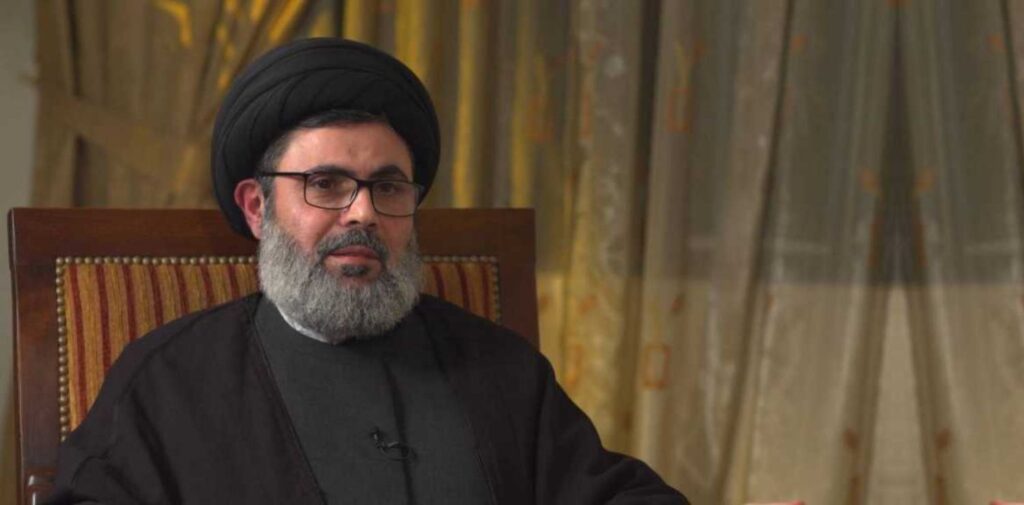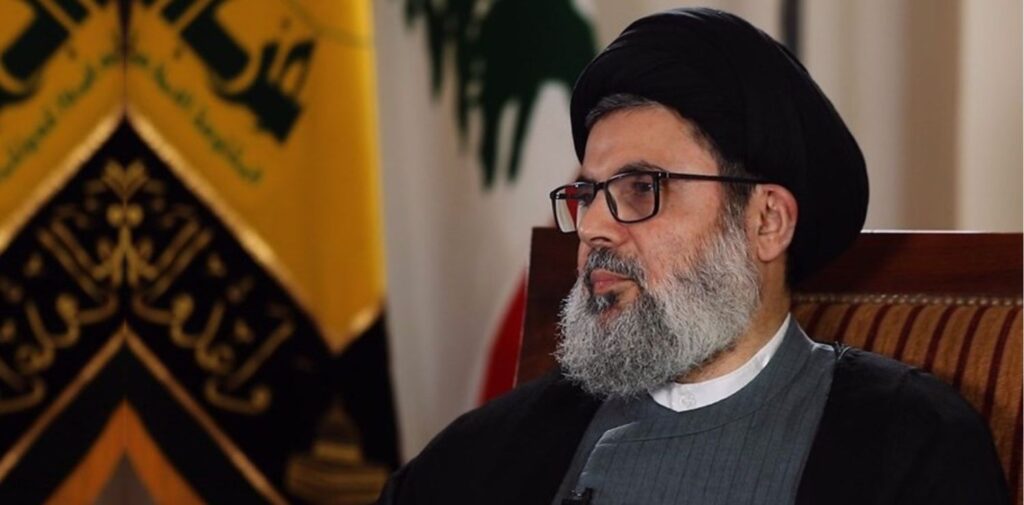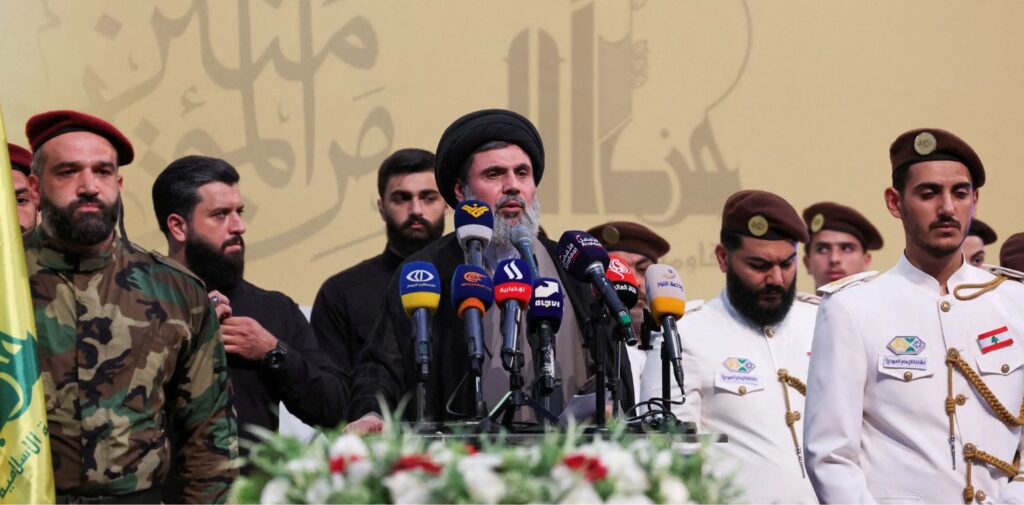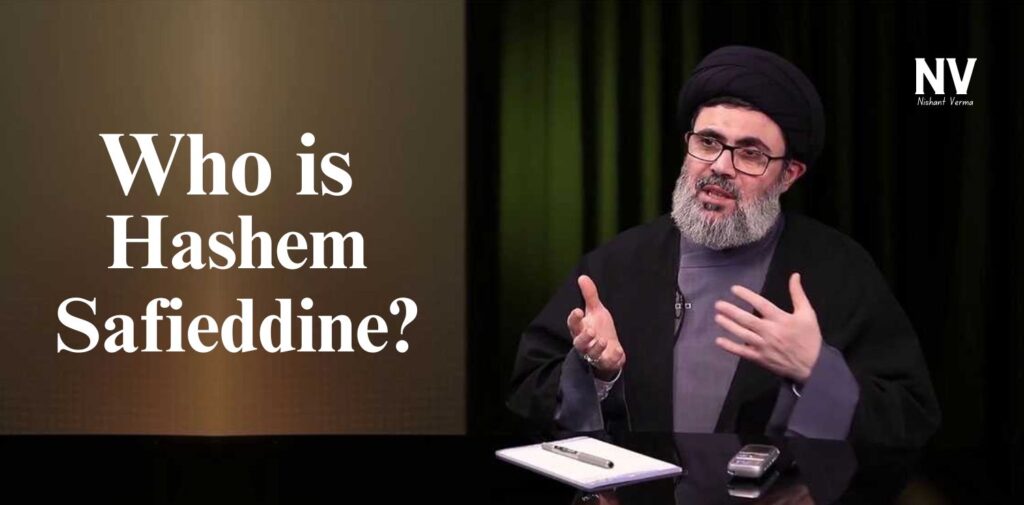Hashem Safieddine is expected to take over as the new leader of Hezbollah after the death of Hassan Nasrallah, the group’s long-time chief. Safieddine is a significant figure within Hezbollah, known for his strong connections to Iran and his role in overseeing the political and civilian aspects of the organization.

Background and Personal Details: Hashem Safieddine
Hashem Safieddine was born in 1964 in Deir Qanun al-Nahr, a village in southern Lebanon. He is a cousin of Hassan Nasrallah and has been closely associated with Hezbollah since its early days. Safieddine studied in Iran and returned to Lebanon in the 1990s, where he was designated as Nasrallah’s potential successor. His ties to Iran are further strengthened by his family connections; Safieddine is the father-in-law of Zeinab Soleimani, the daughter of the late Iranian General Qassem Soleimani.
Role in Hezbollah
Safieddine has served as the head of Hezbollah’s Executive Council, where he managed the organization’s political affairs and civilian operations, including its education and financial systems. While Nasrallah focused on Hezbollah’s military strategy, Safieddine played a vital role in maintaining the group’s political influence and public image. He is also a member of Hezbollah’s Jihad Council, responsible for overseeing the group’s military activities.
Political and Strategic Influence
Safieddine has been a key figure in shaping Hezbollah’s political strategy and has maintained a hardline stance against Israel and the West. He was designated as a terrorist by the United States in 2017 and was blacklisted by Saudi Arabia for supporting the Syrian regime of Bashar al-Assad. This involvement in Syria’s civil war has made him a controversial figure, viewed as instrumental in suppressing the Syrian revolution alongside Hezbollah’s military wing.

Why is He Important?
The potential leadership change comes at a crucial time for Hezbollah, which has been under pressure due to its involvement in regional conflicts and its role in Lebanon’s political crisis. The transition to Safieddine could signify continuity in Hezbollah’s policies but may also lead to changes in its strategic approach, especially regarding relations with Israel and the West.
With his deep-rooted connections to both Hezbollah and Iran, Safieddine is expected to continue strengthening Hezbollah’s role as a regional power broker. His leadership might also impact Hezbollah’s position within Lebanon, especially amid ongoing economic and political turmoil in the country.
Recent Developments
Following reports of Hassan Nasrallah’s death in an Israeli airstrike, Safieddine was quickly named as his successor. Despite earlier claims that he was also killed in the same airstrike, a Hezbollah source confirmed that he survived. This confirmation paves the way for his ascension to leadership, which could bring a shift in Hezbollah’s future strategies and regional dynamics.
Safieddine’s rise to leadership also coincides with a significant moment in the Israel-Hezbollah conflict. Israel’s Prime Minister Benjamin Netanyahu described Nasrallah’s death as a “historical turning point” and an “essential condition” to achieve Israel’s war goals. With the loss of Nasrallah, who led Hezbollah for over 32 years, Safieddine’s leadership will be critical in determining the group’s response to Israel and its future direction.

Challenges Ahead
As the new leader, Safieddine will face multiple challenges. Hezbollah’s position in Lebanon is complicated by the country’s economic crisis and the group’s controversial role in supporting the Syrian government during its civil war. Additionally, managing Hezbollah’s relationship with Iran and other regional players will be a key aspect of his leadership.
He will also have to navigate Hezbollah’s military strategies against Israel while maintaining its political influence in Lebanon. His experience and close ties to Nasrallah make him a fitting successor, but the transition of power could still lead to internal and external challenges for Hezbollah.
Conclusion
Hashem Safieddine is poised to take over as Hezbollah’s leader at a critical juncture. His leadership will be instrumental in shaping the future of the group, both in Lebanon and across the region. With his extensive background in Hezbollah’s political and civilian affairs, he is expected to maintain the group’s close ties with Iran and continue its involvement in regional conflicts. However, how he manages the complex dynamics within Lebanon and Hezbollah’s confrontations with Israel will define his tenure as the new chief.




